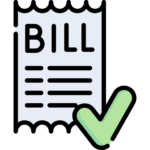Compare business electricity
Compare April 2025 Electricity Quotes and Save up to 45% Today
Just enter your business postcode…
Compare April 2025 Electricity Quotes and Save up to 45% Today
Just enter your business postcode…
At AquaSwitch, we’ve helped thousands of companies compare business electricity quotes. Here’s our simple three-step process for free, no-obligation business electricity quotes:

Use our smart address finder to provide the legal name and location of your business.

Our experts will look up your property’s electricity meter type, capacity, and consumption.

Our experts will present bespoke, fixed electricity quotes from our selection of trusted suppliers.
Comparing business electricity quotes is a simple way to take control of your energy bills and save money.
Here are the top three reasons to compare business electricity quotes today:

Secure fixed business electricity prices for 1 to 3 years in advance to protect your business against future market volatility.

Business energy suppliers offer their best quotes as fixed tariffs to attract new customers, allowing you to save thousands.

Comparing business electricity quotes gives you a clear picture of what’s available in the market, allowing you to make an informed decision.
Here are the top five most important factors to consider when comparing business electricity quotes:

In all business energy contracts, you’ll pay for each unit (kWh) of electricity used. In a fixed tariff, the cost for each kWh remains the same throughout the contract. In a variable tariff, the cost quoted at the start of the contract may fluctuate with market conditions.

Business electricity quotes for small business energy customers are typically offered for between one and three years. Early termination fees for businesses are very expensive, except when moving properties, so it’s crucial to consider the right contract length commitment for your business.

A business electricity tariff will define how business energy bills must be paid during the contract. Some suppliers mandate payment by direct debit, while others require an upfront deposit held for the duration of the contract. Choose payment terms that suit your business.

Reputation is essential when choosing an electricity supplier for your business. With a business electricity tariff, you’ll be locked in with a supplier for years, so look for a reliable provider with a proven reputation for delivering quality customer service.

When our energy experts provide business electricity quotes, we use historic meter readings to estimate how much electricity your business consumes annually. We calculate an estimated annual cost for each quote, allowing you to compare them fairly.
Yes, variable business electricity tariffs typically have no fixed end date, and you’re free to switch business energy suppliers at any time.
There is no price cap in the commercial electricity market, and energy suppliers often charge unnecessarily expensive rates on their out-of-contract variable tariffs.
Businesses on variable contracts can typically save between 40% and 50% by comparing business electricity quotes.
To compare business electricity quotes on a variable tariff, simply select “I’m out-of-contract” on our smart comparison form. Our business electricity experts will then provide you with a comparison report of quotes on a “switch as soon as possible” basis.
Choosing a new electricity contract might seem straightforward, but there are a few easy-to-make mistakes that could cost your business in the long run. Here are three important points to watch out for:

A low price per kWh on a quote can look attractive, but if it’s paired with a high business energy standing charge, your total costs could still be higher. Always compare the total estimated cost, not just the unit rate.

Many businesses stick with their current supplier because they think switching will be disruptive. In reality, the switch is handled behind the scenes, and power supplies will not be interrupted.

Business electricity tariffs can automatically roll over and lock customers into unfavourable fixed tariffs. Set reminders and start comparing quotes months before your current contract’s end date.